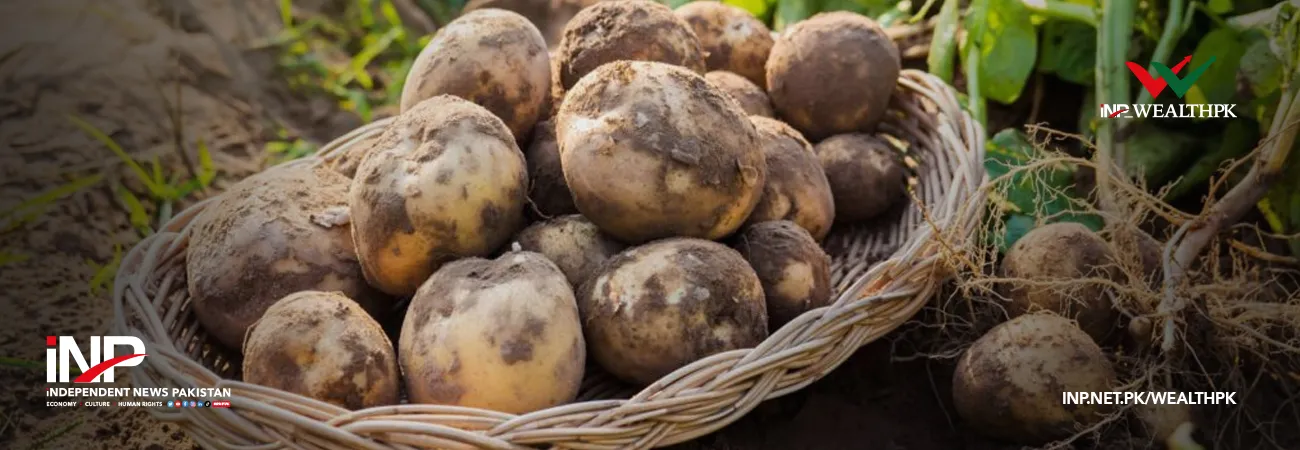INP-WealthPk
Faiza Tehseen
Pakistan can earn billions of dollars through potato exports by establishing indigenous tissue culture laboratories to produce disease-resistant and high-yielding seed varieties. Talking to WealthPK, President of Pak-China Joint Chamber of Commerce and Industry (PCJCCI) Moazzam Ghurki said Pakistan’s overall potato production in 2021 stood at 5.87 million tonnes, which increased to 7.94 million tonnes in 2022, posting a growth of 35%. He, however, said every year, Pakistan had to import 20,000 tonnes of potato seeds, thus draining the foreign exchange. “The imported seed greatly increases the production cost, particularly for small farmers.” PCJCCI Senior Vice-President Fang Yulong told WealthPK that Chinese experts and companies were keen to cooperate with Pakistan in setting up joint tissue culture laboratories. “It is important to start disease-resistant and high-yielding seeds in Pakistan.”
He said Chinese enterprises were also interested in investing in other value additions to potato crops, i.e., mechanised crop management, and producing different edible/non-edible products. Talking to WealthPK, Director of Potato Research Institute, Sahiwal, Dr Ejaz-ul-Hassan said to get high potato yields, it was important to make farmers aware of the value of both hydroponic and aeroponic technologies. “These techniques are viable to get 3-5 times more potato production with less chance of plant termination.” He appreciated the idea of coordination, knowledge sharing and expertise from Chinese experts in this respect. Speaking about the importance of potato tissue culture, hydroponic and aeroponic techniques, Dr Aish Muhammad, coordinator of projects at the Korea Programme for International Cooperation in Agricultural Technology (KOPEA), said the import of expensive potato seed was a big hindrance in enhancing productivity, and stressed the need for introducing tissue culture locally.
He said for the first time, potato seed developed in Pakistan was provided to four private companies and a farmer in the Kasur district on a trial basis. Explaining the process of seed production, Aish Muhammad said first, virus/disease-free seed is prepared through the tissue culture, and then seeds are further multiplied through aeroponic technology, which is ten times more productive than the conventional methods. “We get 5-6 seeds per plant by conventional method, while 50-60 seeds per plant are gotten through this technology. The seed at an early stage is called the nucleus seed (Generation Zero or G-0). At the G-4 stage, the seed gains the standard size of 25-55 grams (the same seed we provided to the farmers for trial). After the G-4 stage, the seed is tagged and certified.” He maintained that the seed matured after 90 days. “In this way, we can get two yields a year.” He said the production of quality seeds could boost Pakistan’s exports. “Pakistan needs to excel in tissue culture technology through Chinese expertise,” stressed Aish Muhammad, who is also former director of the National Institute for Genomics and Advanced Biotechnology at the National Agricultural Research Institute.
Credit: INP-WealthPk













